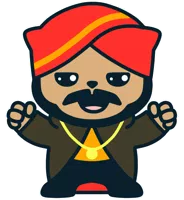Orange site: https://news.ycombinator.com/item?id=32425308

ntil recently, Tanuja Gupta was a senior manager at Google News. She was involved in various forms of activism at the company, and, in April, she invited Thenmozhi Soundararajan, the founder of Equality Labs, a nonprofit, to speak about the subject of caste discrimination. (India's caste system, which has existed in some form for centuries, separates Hindus into broadly hierarchical groups that often correspond to historical religious practice and familial professions. Those at the bottom of the system are called Dalits---formerly known as "untouchables"---and still face extreme discrimination in India.)
Numerous employees within the company expressed the view that any talk on caste discrimination was offensive to them as Hindus, and made them feel unsafe. The talk was eventually cancelled, and Gupta, who had been at Google for more than ten years, resigned amid an investigation into her own behavior. (A spokesperson for Google said that it has "a very clear, publicly shared policy against retaliation and discrimination in our workplace.")
I recently spoke with Gupta. Her lawyer, Cara Greene, joined the conversation, which we agreed would stay on the record. During the interview, which has been edited for length and clarity, we discussed how Silicon Valley deals with issues of caste discrimination, why Google employees felt "threatened" by the talk that Gupta had scheduled, and the circumstances behind her departure from the company.
Why did you want to join Google, and what did you feel about the place when you did?
tanuja gupta: I started working at Google in 2011. I had been working as a program manager in engineering and software for about a decade, but Google was top of the top. Of course you want a career at a great company. That was a product that I used day in and day out. It was a great opportunity.
When did you decide that you wanted to get involved with activism inside Google?
t.g.: Probably with the Google walkout in 2018. It was the height of the MeToo movement. The Kavanaugh confirmation was happening. The news about Andy Rubin had broken---the ninety-million-dollar payout that he received despite allegations of sexual misconduct. And so I think there was a little bit of a breaking point within the company, and in myself, the experiences that I'd had in tech. That's when it started.
As we've all grown during the past couple of years, diversity, equity, and inclusion [D.E.I.] has become more and more recognized as not just a moral nicety but actually as a business imperative, that companies have a competency around these matters, especially in products. For the past three years, I was working on Google News products. To be able to cover news topics about matters of race, gender equity, caste, things like that, you actually have to be able to understand matters of diversity and inclusion. And so it went from being a separate, side thing to integral to being good at your core job.
What got you interested in the subject of caste discrimination?
t.g.: There was my own obvious background. My parents immigrated from India in the early nineteen-eighties. I was certainly familiar with the topic. In September, 2021, two employees approached me. I hosted D.E.I. office hours every week where people could come in and talk about these topics, confidentially, and multiple Google employees came into my office and reported that they had faced discrimination when trying to talk about matters of caste in the workplace. There was already a public condemnation of caste discrimination at Google from the Alphabet workers' union. They had put out a press statement when the Cisco case broke. There were reports from at least twenty Google employees as well. [In June, 2020, California sued Cisco and two of its managers for engaging in caste discrimination. Afterward, Equality Labs received complaints from more than two hundred and fifty tech workers, including twenty Google employees.]
What made it really relevant to Google News was that, in 2022, there was a huge election in India where matters of caste equity were integral. Given the news-product footprint in India, caste is absolutely something we need to talk about, and we need to make sure that our products are thinking about folks from different caste backgrounds.
You're talking about the election earlier this year, in Uttar Pradesh, which is the most populous state in India, with more than two hundred million people, where a very right-wing politician, aligned with the ruling Bharatiya Janata Party, was reëlected as chief minister. [The B.J.P, led by India's Prime Minister, Narendra Modi, is known for its defenses of Hindu identity and religious chauvinism; its base of support has typically come from privileged-caste Hindus, although under Modi the Party has made inroads among voters from a variety of castes.] Are you saying that to understand these issues of caste was important for your work, and not just for the inner harmony of your workplace?
t.g.: That's right. It was a perfect storm of all these things---colleagues coming to me as well as our products being affected by it.
And were these colleagues coming to you in India or in the United States or both?
t.g.: Both.
Were these people who were experiencing discrimination firsthand, or was it more people who wanted to talk about this issue and why it's important?
t.g.: The first conversations I had were with people who felt that they were being discriminated against for even raising this topic. I think that's a form of discrimination in and of itself---where you can talk about some matters related to D.E.I. but not others. Then you had some other folks who faced it directly because of being caste oppressed.
When you say that people felt that they could not bring up caste discrimination, was this in the context of stories about what was happening in Uttar Pradesh, or things within the workplace, or both?
t.g.: Within the workplace.









Jump in the discussion.
No email address required.
Here are some aspects of this that I find hilarious:
any indian thinks they are better than any other indian
google sexy Indian dudes are allowed to be openly bigoted because white nerds are too stupid to recognize it
google is infested with h1bs who don't do any work
Jump in the discussion.
No email address required.
More options
Context